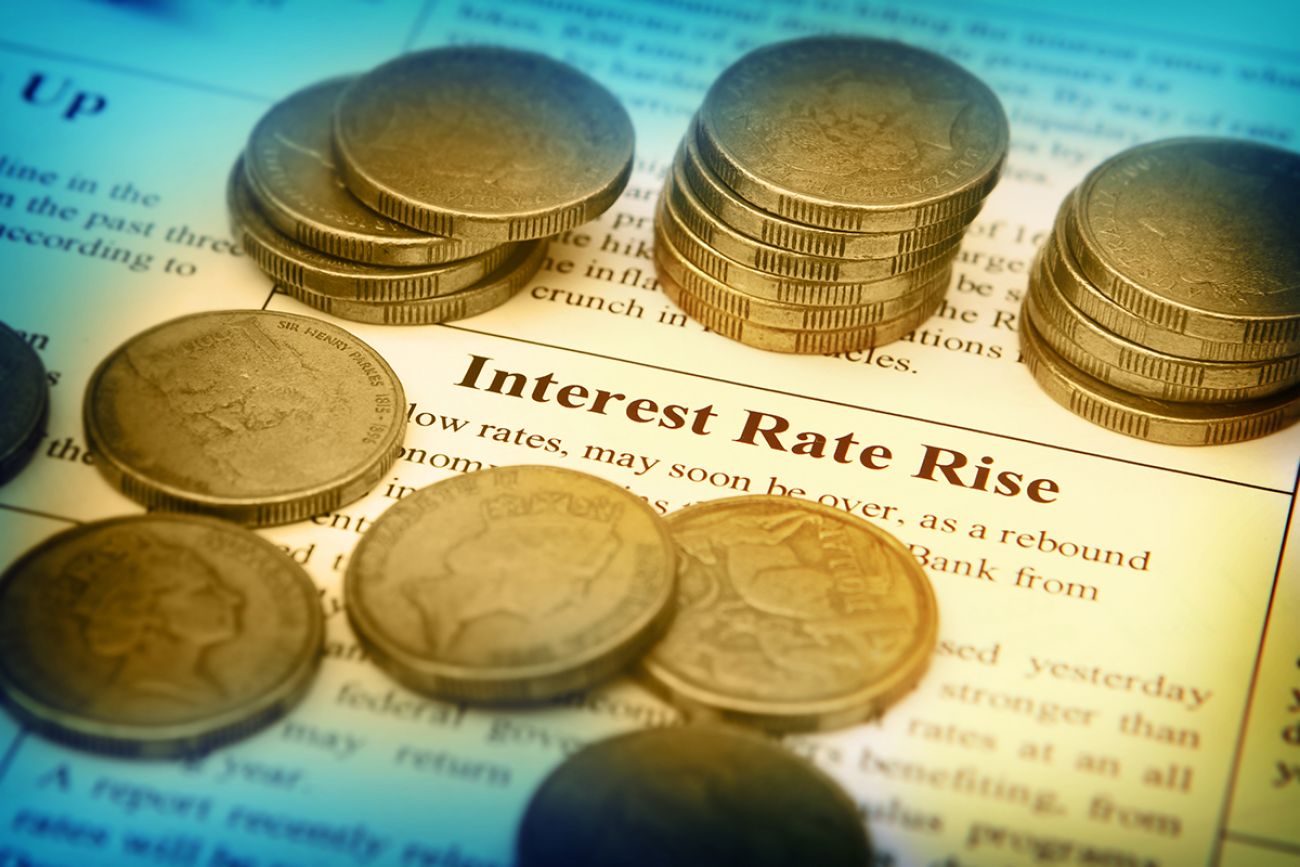Borrowing is getting more costly: What interest rate rise means for Michigan

Borrowing money for everything from mortgages and credit cards to other types of loans will cost more, as officials try to cool off the economy after inflation hit a 40-year high this month.
The Federal Reserve announced on Wednesday that it is raising the interest rate on the fed-funds rate, which is the basis for business and consumer lending. It moves to 0.5 percent, up a quarter of a percentage point.
The implications are vast in Michigan, where the economy is recovering from the pandemic. The state is home to automakers already reeling from supply shortages as the cost of car loans will increase. At the same time, home prices in Michigan went up 14 percent in 2021, driven in part by low interest rates, while the state’s residents carry an average $5,399 in credit card debt.
Related:
- Michigan gas prices are soaring. Who’s to blame, when will it stabilize?
- Inflation is at 39-year high. Michigan consumers and businesses feel pinch
- Michigan’s economy on track for near-full recovery in 2023, forecast says
The action by the Federal Reserve was expected by economists, who’ve predicted that interest costs will increase this year as the rate paid by banks increases.
However, officials warned as they made the first rate hike since 2018, more increases are likely to follow as the Russian invasion of Ukraine has rocked the world’s economies.
The effects of the invasion on the U.S. economy are “highly uncertain,” according to a statement released on Wednesday by the Federal Reserve Board. It’s likely that the Russian invasion will keep inflation climbing — at least in the short term, said the Federal Reserve Board.
Fuel prices are especially volatile as the world shunned exports from Russia, one of the top global producers, and President Joe Biden banned imports of it to the United States.
In one year, gas prices have jumped $1.42 per gallon in Michigan costing drivers about an extra $21 per 15-gallon purchase. The average statewide rate was $4.21 on Wednesday, compared to $4.30 nationwide, according to AAA Michigan.
Consumers are paying more for many items, too: The overall annual inflation rate reached 7.9 percent in February, according to data released last week by the federal Bureau of Economic Analysis.
Cost increases over the last year include 16 percent for beef, 12 percent for flour, 19 percent for bacon, 11 percent for milk. Energy costs are up 25 percent — without the recent gas hikes — and used cars are up 41 percent. Clothing, shoes and services all increased from 4 to 7 percent.
That compares with the inflation goal of 2 percent set by the Federal Reserve.
Economists and the Federal Reserve do not consider either food or energy costs in their key measure of inflation. The so-called “core inflation” of all other spending reached 6.4 percent in February, a number close to the 6.3 percent that University of Michigan economists had predicted that month.
But the rate increases that started Wednesday should bring it down to an average of 5.5 percent for the year, they said.
“As the Fed raises rates, supply chains stabilize, and demand cools down,” according to the most recent U-M forecast.
The housing industry already is experiencing mortgage rate increases due to inflation and the invasion, according to the national Mortgage Bankers Association. The increases are likely to continue with the rate increase.
The 30-year fixed-rate mortgage increased last week to 4.27 percent — the highest since May 2019, according to the MBA. Rates are now roughly a full percentage point higher than a year ago.
Over the past week, the number of new mortgage applications decreased 1 percent over the preceding week, and the number of refinancing applications decreased 3 percent.
Low mortgage rates “compensate for high prices,” according to the U-M report. As a result affordability “will deteriorate substantially over the next two years.”
Home builders in Michigan already are looking at increased construction costs this year, after a year of prices that already surged for products like wood, cement and other products.
Rate hikes are another stress but “not as big of a factor as other escalating costs in terms of some softening in demand that we are seeing,” said Bob Filka, president and CEO of the Michigan Association of Home Builders.
“Those other skyrocketing material costs, and the inability to predict delivery of many products that go into the building of a home, have had more of a negative impact than an uptick in interest rates will.”
The fed-funds rate had been declining since July 2019 when it dropped to near zero in 2020 due to the pandemic.
Since then, federal stimulus spending created a safety net for many Americans, including in Michigan, where earning escalated for many residents and kept spending high.
Business Watch
Covering the intersection of business and policy, and informing Michigan employers and workers on the long road back from coronavirus.
- About Business Watch
- Subscribe
- Share tips and questions with Bridge Business Editor Paula Gardner
Thanks to our Business Watch sponsors.
Support Bridge's nonprofit civic journalism. Donate today.
See what new members are saying about why they donated to Bridge Michigan:
- “In order for this information to be accurate and unbiased it must be underwritten by its readers, not by special interests.” - Larry S.
- “Not many other media sources report on the topics Bridge does.” - Susan B.
- “Your journalism is outstanding and rare these days.” - Mark S.
If you want to ensure the future of nonpartisan, nonprofit Michigan journalism, please become a member today. You, too, will be asked why you donated and maybe we'll feature your quote next time!




